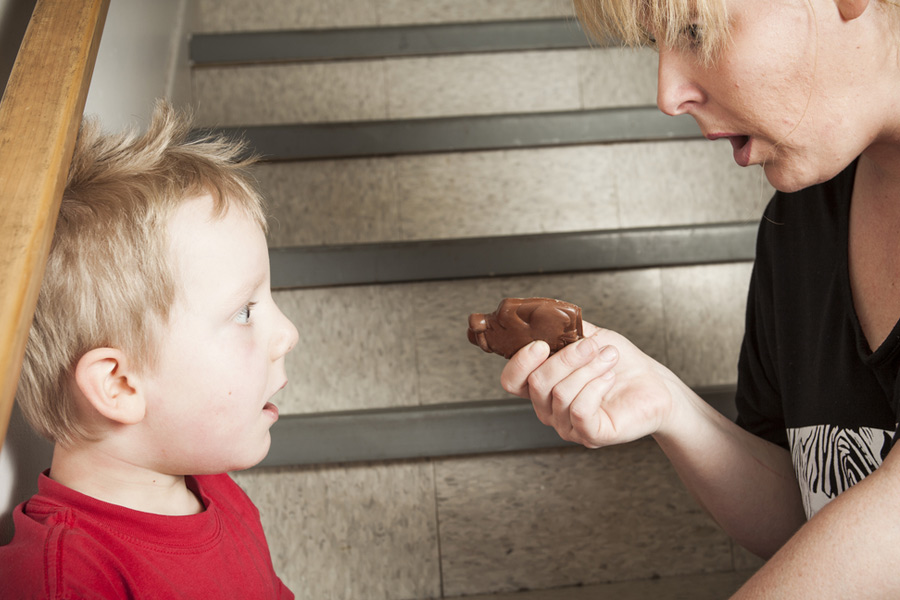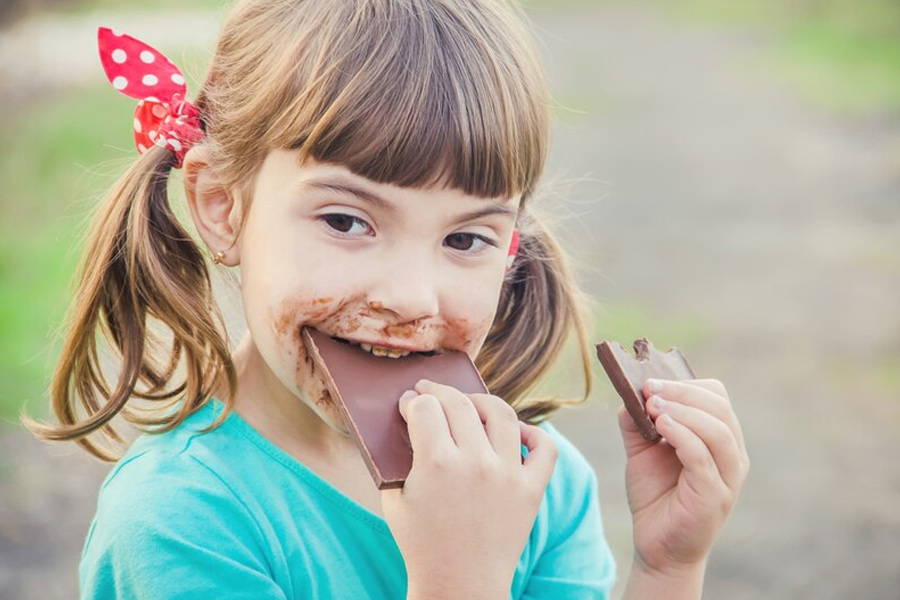
Dealing with a child’s tantrums can be a challenging and often exhausting experience for parents. Whether your little one interrupts you during an important task or demands for something completely unnecessary, the situation can quickly become stressful. In order to calm them down or escape their unreasonable demands, you might find an easy way out by bribing them with a treat or chocolate as a form of distraction.
Table of Content:-
However, recent research suggests that using food as a tool to control a child’s emotions may have long-term, unintended consequences, particularly when it comes to their emotional well-being and eating habits.
A recent study published in the journal of Appetite has shed light on the relationship between coercive food control practices, such as offering sweets to soothe emotions and negative outcomes in young children. The research, led by a team of psychologists of University of Florida, reveals that parents who use food to control their child’s emotions are potentially fostering poor emotion regulation and promoting unhealthy emotional eating behaviours, especially in preschoolers.
The Impact of Coercive Control Practices with Food

Coercive control is a psychological term used to describe attempts by a caregiver to control a child’s emotions through forceful or manipulative methods. In the case of food, it refers to the practice of using specific foods, often sugary or unhealthy, to soothe, distract, or reward children in emotional distress.
The study specifically found that parents who employed such strategies tended to have children who struggled with regulating their emotions effectively. Instead of learning how to manage feelings of frustration, anger, or sadness in healthy ways, children exposed to these food-related tactics were more likely to rely on food as a coping mechanism. This emotional overeating, often triggered by stress or negative emotions, can carry into later stages of life, potentially contributing to problems like childhood obesity or eating disorders.
The researchers also noted that these children were more likely to develop a complex relationship with food, viewing it as a source of comfort rather than nourishment. Over time, this could increase the likelihood of developing unhealthy eating habits that may persist into adulthood.
The Study: Key Findings

According to the study, titled “Parent’s Use of Coercive Control Practices with Food Is Associated with Poorer Emotion Regulation and Increased Emotional Overeating in Preschoolers,” the data pointed to a clear link between food coercion and poor emotional regulation in children. In this research, parents of preschool-aged children were asked about their use of food to manage their child’s behaviour. The study measured how often parents gave in to their child’s emotional outbursts by offering food, particularly sweet or highly palatable foods, as a reward or distraction.
The results were striking. Children whose parents regularly used food to manage emotions displayed significantly poorer emotion regulation skills. These children were not only more prone to emotional overeating, but they also found it harder to identify and express their emotions appropriately. This difficulty in handling feelings could potentially lead to a greater risk of mental health issues in the future, such as anxiety or depression, especially as children grow older and face more complex challenges.
The study also pointed out that the use of food as a form of control was not necessarily linked to any particular socio-economic background or cultural context. It was a widespread issue, with many parents from varying backgrounds falling into the trap of offering food for emotional relief without understanding the long-term implications.
How to Address Emotional Eating in Children
While it is understandable that parents want to soothe their child’s distress at the moment, experts advise a more balanced approach to managing emotions. Instead of offering sugary foods like chocolate or candy, which may provide an immediate sense of gratification but ultimately reinforce unhealthy habits, parents are encouraged to use alternative coping strategies.

Validate emotions: Teaching children to acknowledge their emotions is a vital first step. By validating how they feel, whether they are upset, frustrated, or angry, parents can help children process their emotions without turning to food as a source of comfort.
Encourage non-food-based rewards: Offer alternatives to food as rewards for good behaviour or as distractions during difficult moments. For example, a child could be rewarded with extra playtime, a favourite activity, or a sticker chart. These non-food rewards help establish a healthier relationship with food.
Promote healthy eating habits: Encourage children to develop a healthy relationship with food by making nutritious choices available and setting consistent mealtimes. Children are more likely to make healthy food choices when they see their parents modelling positive eating behaviours.
Teach self-regulation skills: Help children build emotional resilience by teaching them strategies to self-regulate. This might include taking deep breaths, counting to ten, or finding a quiet space to calm down. Over time, these strategies will help children learn how to manage their emotions without turning to food.
Seek professional guidance: If emotional overeating becomes a persistent issue, seeking professional guidance from a child psychologist or dietitian may be beneficial. They can help address the root causes of emotional eating and develop tailored strategies to promote healthier emotional and eating habits.
Conclusion
Offering chocolate or other sugary snacks to calm a child’s tantrums might seem like an easy fix at the moment, but the long-term effects could be more harmful than we realise. As shown in the study, using food as a way to control emotions can disrupt emotional development and lead to unhealthy eating patterns, which may continue into adulthood.
Parents can play a crucial role in helping their children build a healthy relationship with food by promoting emotional regulation techniques and providing non-food-based rewards. With the right guidance, children can learn to manage their emotions in a way that is not reliant on food, setting them up for healthier habits and emotional resilience as they grow.
Also watch this video
How we keep this article up to date:
We work with experts and keep a close eye on the latest in health and wellness. Whenever there is a new research or helpful information, we update our articles with accurate and useful advice.
Current Version